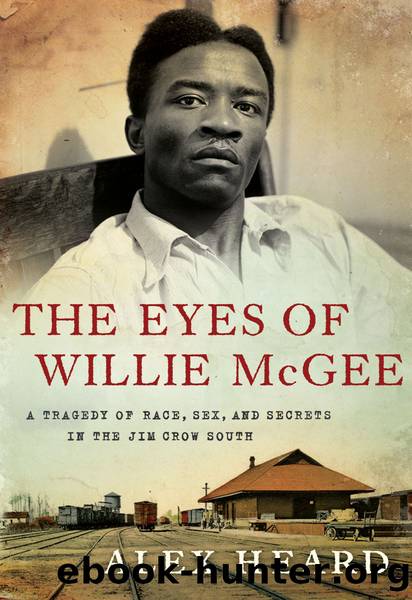The Eyes of Willie McGee by Alex Heard

Author:Alex Heard
Language: eng
Format: epub
Publisher: HarperCollins
Published: 2010-11-15T00:00:00+00:00
The Smith Act trial started in January 1949, minus one defendantâWilliam Z. Foster, whose case was separated because he was ill. In his opening statement, U.S. attorney John F. X. McGohey said he would demonstrate that the goal of any Communist group in a democratic nation was, by definition, overthrow, whatever its leaders said in public. Opposition to capitalist democracies was fundamental to the teachings of Marx and Lenin, and in the United States, change could only come through conspiracy, because voters would never choose Communism at the ballot box. âRemember [the] phrase, Marxism-Leninism,â he said dramatically. âYou will hear it frequently throughout the trial.â
The trial lasted seven months from jury selection to verdict, ending on October 14, 1949. The defendants, fully aware that the deck was stacked against them, used the courtroom as a protest forum, often answering questions with rambling rants against U.S. policies, âFBI stoolpigeons,â and the presiding judge, Harold Medina. Early on, Medina warned the defendants and their lawyers that he wouldnât stand for courtroom ârumpusesâ aimed at undermining his authority, but his threat never really stopped the flow of abuse.
Medina was also impatient with more reasonable arguments. In June, he ruled out a stack of anecdotal and journalistic evidence that the defense hoped to introduce, designed to demonstrate that American Communists often worked for social justice in the same way that any progressive political group would, as embodied by groups like the CRC. âJudge Medina said the trial would continue for âyears and yearsâ if he admitted in evidence all the speeches, articles, statements and other documents offered to show the defendants had engaged in nonrevolutionary activities to help veterans, youth, workers, Negroes, Jews and other groups with grievances,â the Times reported.
As promised, the government presented an extended lecture about the perils of American Communism, and the sheer volume of testimony was incredible. Toward the end, the Times ran the numbers and estimated that the jury of four men and eight women sat through 158 trial days and 5 million words. The transcript, not counting pretrial challenges and motions, came to 15,000 pages.
McGohey delivered anecdotal evidence heavy on perceived perils and light on tangible proof of a conspiracy. Waving basic texts like Joseph Stalinâs The Fundamentals of Leninism, he and other prosecutors argued that American Communism had made a radical turn in April 1945, when French Marxist Jacques Duclos attacked the leadership of Earl Browder, the general secretary of the American Party at the time. During the war, Browder had tried to rebrand Communism, dissolving the Communist Party and replacing it with the Communist Political Association, a more mainstream political movement that, under the slogan âCommunism is 20th Century Americanism,â recommended such heresies as labor-management cooperation. Browder was ousted in 1945 in favor of harder-line types like Foster and Dennis.
That was the dreary gist of the case, though from day to day the trial featured dramatic moments that brought it to life. Benjamin Davis, called in July, gave a good accounting of why a black American might be drawn to the Communist Party in the first place.
Download
This site does not store any files on its server. We only index and link to content provided by other sites. Please contact the content providers to delete copyright contents if any and email us, we'll remove relevant links or contents immediately.
Machine Learning at Scale with H2O by Gregory Keys | David Whiting(4313)
Never by Ken Follett(3954)
Harry Potter and the Goblet Of Fire by J.K. Rowling(3856)
Fairy Tale by Stephen King(3394)
Unfinished: A Memoir by Priyanka Chopra Jonas(3388)
The Man Who Died Twice by Richard Osman(3077)
Will by Will Smith(2919)
It Starts With Us (It Ends with Us #2) by Colleen Hoover(2367)
Rationality by Steven Pinker(2363)
Can't Hurt Me: Master Your Mind and Defy the Odds - Clean Edition by David Goggins(2339)
The Dark Hours by Michael Connelly(2307)
The Storyteller by Dave Grohl(2234)
Friends, Lovers, and the Big Terrible Thing by Matthew Perry(2230)
The Dawn of Everything: A New History of Humanity by David Graeber & David Wengrow(2208)
The Becoming by Nora Roberts(2201)
The Stranger in the Lifeboat by Mitch Albom(2120)
Cloud Cuckoo Land by Anthony Doerr(2110)
Love on the Brain by Ali Hazelwood(2075)
Einstein: His Life and Universe by Walter Isaacson(2021)
